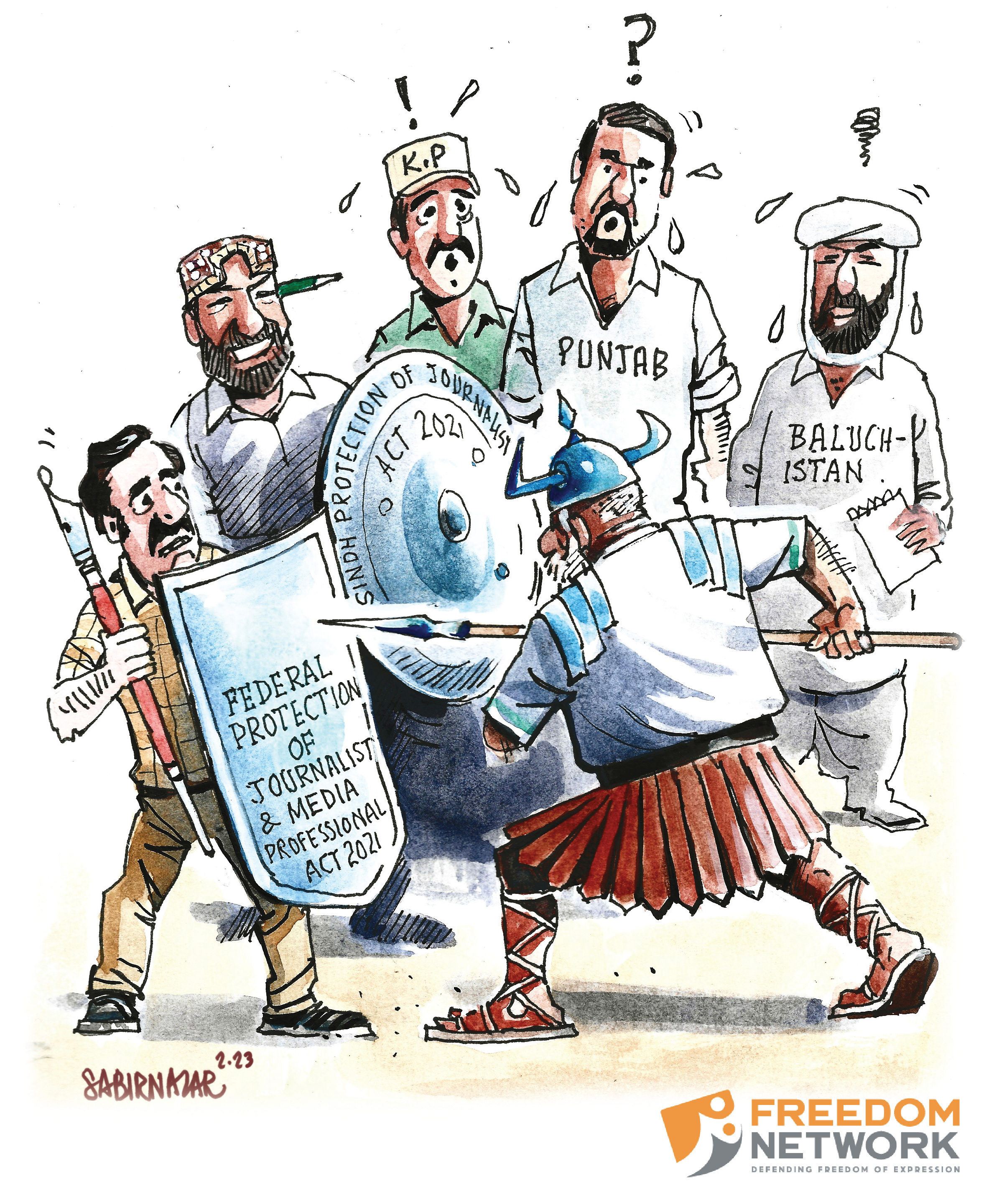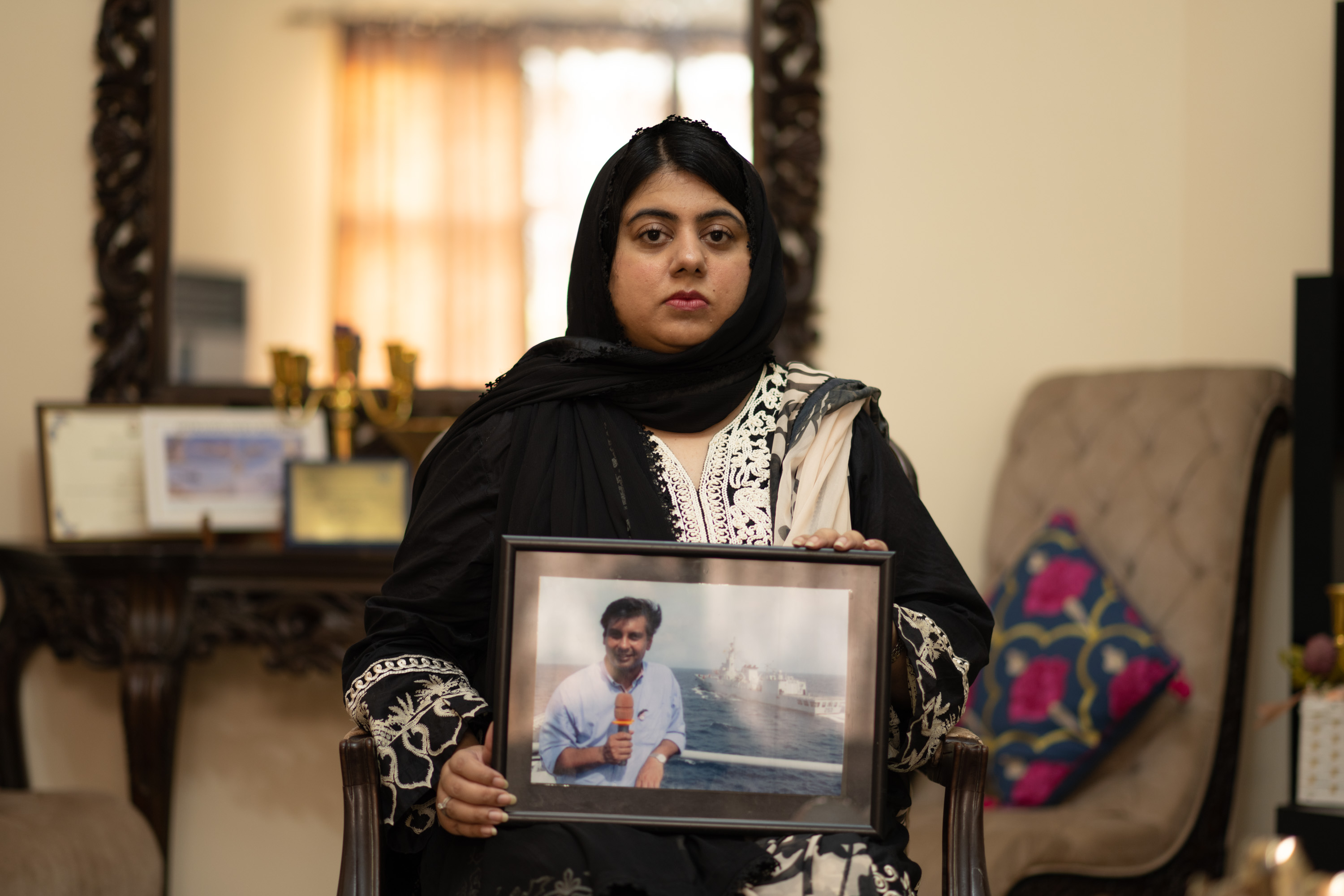Nighat Dad
Online spaces have often been touted as “ungovernable” given their decentralized and democratized content generation models. This ungovernability is, however, grossly exaggerated in the face of legislation aimed at internet governance and surveillance technology all over the world. And Pakistan is no different. Regulation aimed at online spaces has direct implications for freedom of expression, the right to assembly and association, and the right to privacy. This essay analyzes digital freedoms in online spaces during the period covering November 2018 till September 2019 in Pakistan through a review of state regulation and experiences of users in these spaces.
While attempts had been made to regulate the internet since the early 2000s, the passage of the Prevention of Electronic Crimes Act (PECA) in August 2016 marked a turning point in the history of digital rights in Pakistan. The Act allows for the prosecution of offences such as cyber-terrorism, online defamation and certain instances of harassment. At the same time, the law empowers the Pakistan Telecommunications Authority (PTA) to remove and block content under Section 37 of the Act.
Online free speech clampdown
Despite opposition from civil society and members of the technology industry, the bill was passed and has been repeatedly used to clamp down on online freedom of expression in Pakistan. Since the passage of PECA in August 2016, the PTA has reportedly blocked 824,878 websites.[1] Furthermore, Pakistan is among the top countries in terms of content restrictions on Facebook.[2] Journalists and activists critical of the state have received notices from Twitter stating that their tweets were reported through official correspondence as allegedly violating Pakistani law.[3]
PECA has specifically been used to target journalists and dissenting politicians for their online speech. In 2018, FIRs [first information report] were registered against former Senator Faisal Raza Abidi for allegedly using “highly insulting and inappropriate language” against the chief justice and the judiciary in an interview on a web-channel, Naya Pakistan, along with the owner of Naya Pakistan and Ahsan Saleem, the producer. They were charged under PECA, the Anti-Terrorism Act and the Pakistan Penal Code. All three were acquitted after a few months in May 2019.[4]
Additionally, journalist Shahzeb Ali Shah Jillani was also charged under Sections 500 (punishment for defamation), 109 (abetment) and 34 (common intention) of the Pakistan Penal Code read with Sections 10(a) (cyber terrorism), 11 (hate speech) and 20 (offences against dignity of a natural person) of PECA for allegedly making defamatory remarks online against state institutions. He was also subsequently cleared of charges.[5]
Chilling impact
Despite the lack of convictions, these instances are alarming because they leave a chilling impact on online speech. Also, journalists charged with offences are often harassed and intimidated by law enforcement agencies – in some instances, empowered by the broad powers given to them under PECA and, in other cases, in flagrant violation of the procedure laid down under the Act. Meanwhile, the use of the criminal defamation law, under Section 20 of PECA, has been weaponized to silence activists, especially women, speaking up as part of the #MeToo movement.
In addition to legal apparatus, journalists and activists in Pakistan are regularly targeted online through disinformation campaigns, often spearheaded by state apparatus.[6] In the wake of the visit of Saudi Crown Prince Mohammad bin Salman, the Interior Ministry ordered an investigation into criticism of the prince and issued a letter identifying journalists and activists who shared images of Jamal Khashoggi on their social media profiles.
Restrictions on internet access
Another obstacle in ensuring that digital rights are granted to the majority is the access to internet. Internet access has remained a persistent problem in Pakistan due to lack of infrastructure to provide reliable and high-speed internet in certain parts of the country. However, even in areas where internet connections are available, the arbitrary practice of internet shutdowns has meant that access to the internet is routinely denied on vague grounds such as security.
Empowered through Section 54 of the Pakistan Telecommunications Act to suspend services during a “state of emergency”, temporary internet shutdowns by the state are a regular practice during national holidays and the coverage period was no different with mobile network shutdowns during 12th Rabiul Awwal and Muharram.[7] Furthermore, mobile networks were shut down in all major cities during protests by right-wing groups after the Supreme Court acquitted Asia Bibi.[8] Network shutdowns during times of political and social turmoil are internationally recognized as disproportionate measures and often give way to panic and misinformation.[9]
Even more worryingly, internet shutdowns have also been employed in the longer term to exclude large swathes of Pakistan. Mobile internet services have been blocked in erstwhile Tribal Areas (now merged with Khyber Pakhtunkhwa province) for more than three years – with only partial restoration in Bajaur[10] – and parts of Balochistan have been denied mobile internet access since February 2017.[11] In February 2018, the Islamabad High Court (IHC) curtailed the powers of the PTA to shut down networks. However, the case is currently pending on appeal with a stay order allowing the PTA to operate with a blank check.
Glimmer of hope
In an age when internet freedoms are increasingly shrinking in Pakistan, there is still a ray of hope. In September 2019, the Islamabad High Court ruled in favor of the Awami Workers Party (AWP) in their petition against the blocking of their official website right before the 2018 general elections in the country. The court held that there are limits to the PTA’s powers to block content and it cannot be exercised without due process, i.e., issuance of notices and right to appeal as laid down in Section 37 of PECA. As the state expands its powers in online spaces, it is now imperative that ordinary citizens fight back and assert their constitutional rights.
The author is Executive Director Digital Rights Foundation.
The author contributes this piece for Freedom Network’s “100% Impunity for Killers, 0% Justice for Pakistan’s 33 Murdered Journalists” Impunity Report marking International Day to End Impunity.
[1] “Pakistan blocks around 824,878 URLs for unlawful online content”, APP, December 25,2018, https://www.thenews.com.pk/amp/410648-pakistan-blocks-around-824-878-urls-for-unlawful-online-content.
[2] Ramsha Jahangir, “Pakistan among top states where Facebook curbed most content”, Dawn, May 25, 2019, https://bit.ly/2wFDSSb.
[3] Ramsha Jahangir, “Explainer: Legal notices to users: Twitter says it prefers to protect free speech”, Dawn, January 25, 2019, https://www.dawn.com/news/1459638/explainer-legal-notices-to-users-twitter-says-it-prefers-to-protect-free-aspeech.
[4] “Faisal Raza Abidi acquitted in ‘insulting, threatening’ former CJP Nisar case”, The Express Tribune, May 2, 2019, https://bit.ly/2QULXfc.
[5] “Karachi court disposes of case against journalist Shahzeb Jillani”, Samaa Digital, May 18, 2019, https://bit.ly/2Zb5I55.
[6] “‘A dangerous trend’: Pakistani journalists critical of the government and military targeted in Twitter campaign”, Global Voices, 9 July, 2019, https://bit.ly/2oaQeAO.
[7] Shahid Kamal, “Mobile phone services to remain partly suspended for two days of Ashura”, Dawn, September 9, 2019, https://www.dawn.com/news/1504380.
[8] Mubasher Bukhari and Saad Sayeed, “Pakistan shuts phone networks as Islamists protest over Christian woman”, Reuters, November 2, 2019, https://uk.reuters.com/article/uk-pakistan-blasphemy/pakistan-shuts-phone-networks-as-islamists-protest-over-christian-woman-idUKKCN1N7188.
[9] “Living in Digital Darkness: A Handbook on Internet Shutdowns in India”, sflc.in, https://bit.ly/2nFS1NX.
[10] “Mobile internet service restored in Bajaur”, Dawn, March 19, 2019, https://www.dawn.com/news/amp/1470511.
[11] Shah Meer Baloch, “Balochistan’s Great Internet Shutdown”, The Diplomat, March 25, 2019, https://thediplomat.com/2019/03/balochistans-great-internet-shutdown/.
The author contributes this piece for Freedom Network’s “100% Impunity for Killers, 0% Justice for Pakistan’s 33 Murdered Journalists” Impunity Report marking International Day to End Impunity.
Growing State Targeting Of Dissent Online And Chilling Free Speech
- November 6, 2019
- 11:54 am
- No Comments
More from the News section
September 18, 2023
No Comments
July 26, 2023
No Comments
June 20, 2023
2 Comments
March 21, 2023
No Comments
August 30, 2022
No Comments

Resize text-+=

